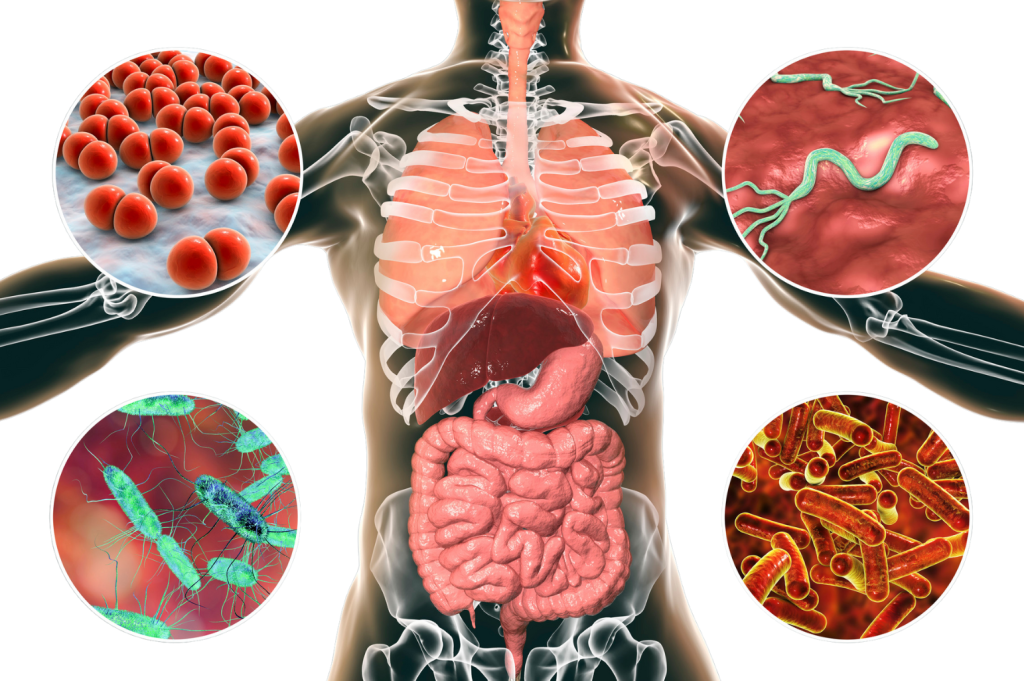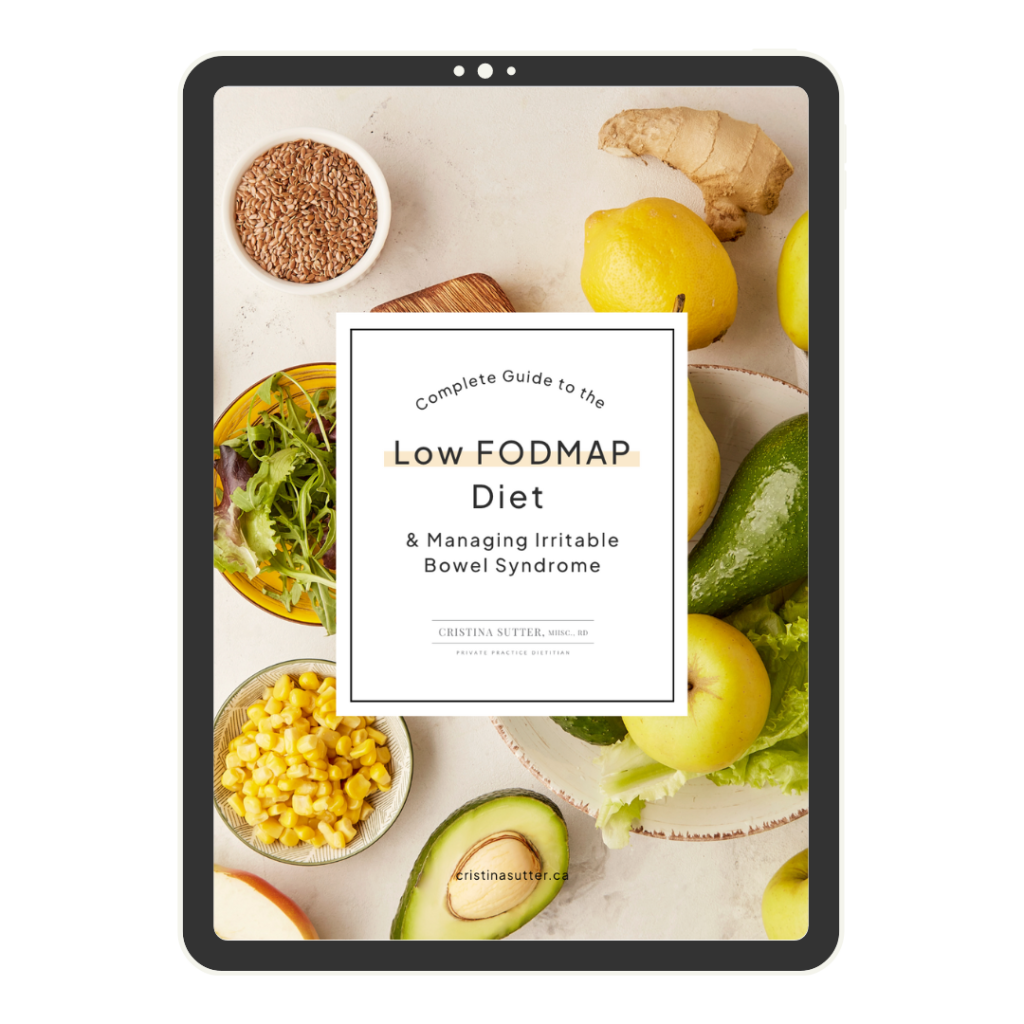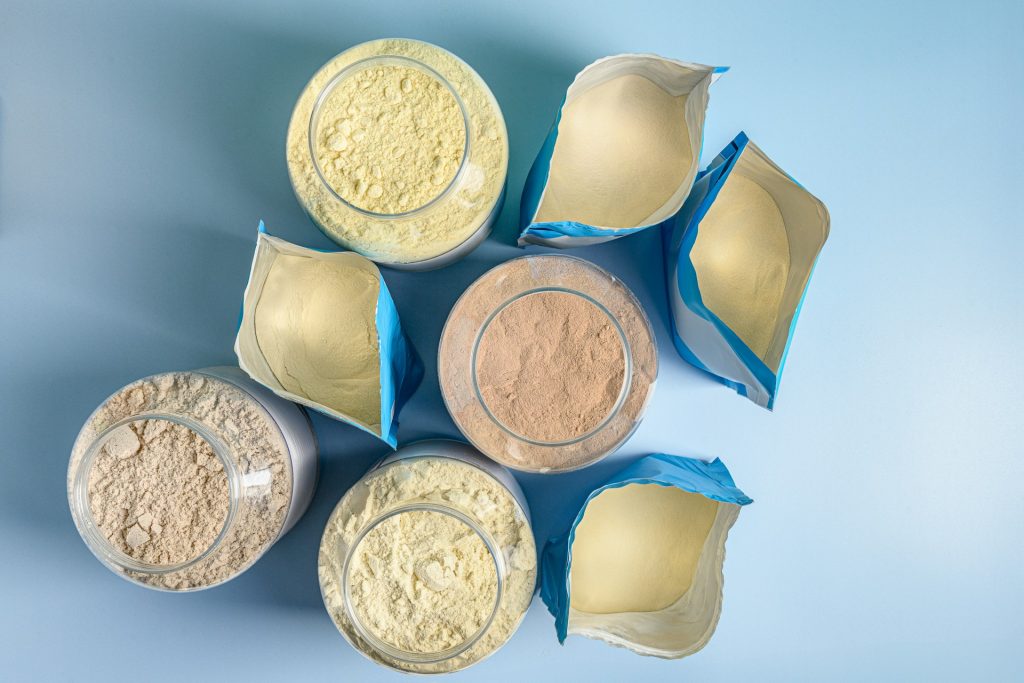Research has bolstered support for new therapies to treat Irritable Bowel Syndrome (IBS). People often benefit from a combination of these therapies to treat their IBS effectively. That is, most people find optimal results when they work with a practitioner to try several different therapies to treat IBS.
What are the Therapies to Treat IBS?
- FODMAP Diet for IBS
- Natural Supplements for IBS
- Prescription Medications for IBS
- Gut-brain Axis Directed Therapies eg. cognitive behaviour therapy, gut directed hypnotherapy
What is Irritable Bowel Syndrome (IBS)?
People with IBS get recurring stomach cramps and either loose and frequent stools, constipation, or both.
IBS is defined as recurrent abdominal pain or cramps with a change in stool frequency or form. The abdominal pain typically improves after having a bowel movement. Many people with IBS also experience bloating and gas, but this is not part of the strict diagnostic criteria. To get an IBS diagnosis, symptoms must recur at least 3 days a month; though most people experience symptoms a few days a week.
How Do I Know If I Have IBS?
Because there is no medical test to diagnose IBS, it is diagnosed when your doctor has ruled out other possible causes of ongoing digestive symptoms. Speak to a doctor to rule out other common conditions like lactose intolerance and constipation or something more serious like Celiac or Inflammatory Bowel Disease.
1. The FODMAP Diet
What is the FODMAP diet and how does it help?
The FODMAP elimination diet is very effective and reduces IBS symptoms by 70%, in 75% of people with IBS. The low FODMAP diet was developed by researchers at Monash University who proved that certain naturally occurring sugars aggravate digestive symptoms in people with IBS. FODMAP stands for fermentable oligosaccharides, disaccharides, monosaccharides, and polyols, the types of short-chain carbohydrates that aggravate symptoms in susceptible people.
The low FODMAP diet effectively improves IBS symptoms, but it is very restrictive and complicated. Working with a dietitian to navigate the FODMAP diet, here is a step by step guide to the three phases of the FODMAP diet link. Or the PDF complete guide to the FODMAP diet
Who Should NOT do the FODMAP Diet?
The FODMAP diet is difficult to follow and eliminates a lot of healthy foods, so the FODMAP diet is not recommended for:
- Children,
- People who are underweight,
- People with diet restrictions like plant-based diets or
- People with a history of eating disorders.
- People who do not make the majority of their meals, such as those who receive a residential meal service or those who travel a lot.
These individuals can work with a dietitian to use the other strategies to manage IBS symptoms.
2. Natural Supplements for IBS
Fortunately, there are many natural supplements that support digestive health and reduce discomfort. For example, psyllium has long been recommended to regulate stools in individuals with both constipation and diarrhea type IBS. See my blog on What Supplements Help Prevent IBS Symptoms for a complete review of the most effective supplements that have been studied in randomized control trials.
CTA: Work with a digestive dietitian to find the right supplements that can help your symptoms.
3. Prescription Medications for IBS
There are several types of prescription medications that both gastroenterologists and physicians can prescribe to alleviate specific IBS symptoms such as constipation, diarrhea and abdominal cramps. Medications can include antispasmodics, antidepressants, prosecretory agents, anti-diarrheal agents, antibiotics, serotonin agents.
4. Gut-Brain Axis Directed Therapies
New research is supporting several therapies to address the gut-brain connection. IBS involves a strong gut-brain connection and many symptoms are triggered or exacerbated by stress.
Cognitive Behavioral Therapy (CBT) is a tool used by psychologists that has long been used to effectively treat depression and anxiety. CBT essentially involves changing our behaviours and feelings by first changing our thoughts. By replacing negative, unhelpful thoughts with more realistic balanced thoughts we can lower our stress and anxiety and improve our mood. CBT works for IBS because it may help manage the stress response in the gut when you are stressed and anxious. CBT has been tested in multiple randomized controlled trials and consistently demonstrates significant and lasting effects on IBS symptoms and quality of life.
CBT is as effective as prescription medication in improving IBS symptoms.
Gut directed hypnotherapy has also been studied in multiple well-controlled studies to improve symptoms in people with IBS by 70-80%. While it sounds a little far fetched, it is feels like a guided meditation or mindfulness that exercises a part of the brain responsible for the brain-body connection.
Gut directed hypnotherapy promotes relaxation and focus, it also uses the power of suggestion to receive fewer pain signals from the gut.
The Nerva app uses gut directed hypnotherapy and was developed by a researcher at Monash University. Use my 25% discount code for the Nerva app, if you would like to try it.
Work with a digestive dietitian to try therapies to treat IBS. Book an appointment with digestive dietitian Cristina Sutter today.








